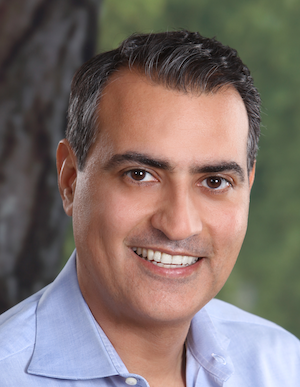infectious diseases
See the following -
Medicines for Malaria Venture Releases Report on how R&D Partnerships Serving Neglected Communities have Developed Dozens of Life-Saving Innovations Since 2010
 The public-private initiatives that contributed to COVID-19 vaccine and drug development have showcased a model for accelerating biomedical innovation. This is another powerful example of how public-private partnerships have established themselves as powerhouses for fighting global health threats. According to a new report launched today from a group of 12 product development partnerships (PDPs), over the last decade, such alliances have brought to market 66 new drugs, vaccines, diagnostics and other technologies for a number of diseases—including tuberculosis, malaria, HIV, meningitis and sleeping sickness. These innovations have reached and benefitted more than 2.4 billion people in low-income countries.
The public-private initiatives that contributed to COVID-19 vaccine and drug development have showcased a model for accelerating biomedical innovation. This is another powerful example of how public-private partnerships have established themselves as powerhouses for fighting global health threats. According to a new report launched today from a group of 12 product development partnerships (PDPs), over the last decade, such alliances have brought to market 66 new drugs, vaccines, diagnostics and other technologies for a number of diseases—including tuberculosis, malaria, HIV, meningitis and sleeping sickness. These innovations have reached and benefitted more than 2.4 billion people in low-income countries.
- Login to post comments
New Data Sources Fuel Understanding of Public Health Emergencies
Remember when Google search results were first used to predict the flu? Now, data from mobile phones, social media and even grocery scanners has been shown to be effective at identifying patterns in epidemics. Standard travel data collection methods, however, are limited and often provide outdated data. Mobile phones, on the other hand, are nearly ubiquitous, and can serve as a rich data resource. Call data, which automatically provides time and location details, can help in understanding human mobility...
- Login to post comments
New Diseases And National Transparency: Who Is Measuring Up?
[...] I opened my morning mail to find a note from a private list I subscribe to, published by a company that monitors hazards for businesses with expatriate employees. The note flagged new news from Saudi Arabia... Read More »
- Login to post comments
One Hour Flu Test Developed by Scientists in Move That Could Tackle Antibiotic Resistance
Scientists have developed a test which can diagnose flu in one hour, in a move which could speed up access to the right treatment and tackle antibiotic resistance. The instant swab tests, invented at University Hospital Southampton Foundation trust, mean specific viruses can be isolated, and given the right treatment, within 60 minutes. Currently such processses take almost a week, meaning thousands of patients are needlessly given antibiotics, fuelling spiralling drug resistance...
- Login to post comments
Panel To Discuss 'A Manhattan Project For Biodefense' At NYC Public Meeting
 The bipartisan Blue Ribbon Study Panel on Biodefense will host its first-ever public meeting in New York City this Thursday, July 11, to discuss A Manhattan Project for Biodefense - a national, public-private research and development undertaking to defend the U.S. against biological threats. These threats include biological warfare and bioterrorism, where nation-states or terror groups intentionally spread biological agents to cause widespread panic and harm, as well as infectious disease pandemics.
The bipartisan Blue Ribbon Study Panel on Biodefense will host its first-ever public meeting in New York City this Thursday, July 11, to discuss A Manhattan Project for Biodefense - a national, public-private research and development undertaking to defend the U.S. against biological threats. These threats include biological warfare and bioterrorism, where nation-states or terror groups intentionally spread biological agents to cause widespread panic and harm, as well as infectious disease pandemics.
- Login to post comments
The Forgotten History Of Vaccinations You Need To Be Aware Of
Vaccines are one of the most controversial medical therapies, and it's impossible to make an informed decision unless you know both sides of the story. In the process of knowing both sides, the historical context is critical...
- Login to post comments
US Provides $40 Million To Tackle Infectious Diseases
Developing countries will receive extra support to prevent, detect and respond to health threats as the US government announced plans last month (13 February) to boost funding for nations at high risk from infectious disease. Read More »
- Login to post comments
Using the Latest Advances in Data Science to Fight Infectious Diseases
 One of the most dramatic shifts in recent years that is empowering epidemiologists to be more effective at their jobs is occurring due to improvements in data technologies. In the past, the old "relational" data model dictated that data had to be highly structured, and as a result treated in distinct silos. This made it difficult, if not impossible, to analyze data from multiple sources to find correlations. Epidemiologists would spend many minutes or even hours on each query they ran to get results back, which is unacceptable when you need to test dozens of hypotheses to try to understand and contain a fast-moving outbreak. (Imagine how you would feel if each one of your Google searches took 45 minutes to return!) By contrast, using newer technologies, the same queries on the same hardware can run in seconds. Read More »
One of the most dramatic shifts in recent years that is empowering epidemiologists to be more effective at their jobs is occurring due to improvements in data technologies. In the past, the old "relational" data model dictated that data had to be highly structured, and as a result treated in distinct silos. This made it difficult, if not impossible, to analyze data from multiple sources to find correlations. Epidemiologists would spend many minutes or even hours on each query they ran to get results back, which is unacceptable when you need to test dozens of hypotheses to try to understand and contain a fast-moving outbreak. (Imagine how you would feel if each one of your Google searches took 45 minutes to return!) By contrast, using newer technologies, the same queries on the same hardware can run in seconds. Read More »
- Login to post comments
What Would Keep Ebola From Spreading In The US? Investing In Simple Research Years Ago.
There’s a thing you learn, when you’ve been writing about infectious diseases for a while: People love drama. They’re not so much with detail...
- Login to post comments
World Health Organization Report Warns Most Countries Lack Plans to Combat Antibiotic Resistance
A quarter of countries that responded to a WHO survey have national plans to preserve antimicrobial medicines like antibiotics, but many more countries must also step up. A new report, "Worldwide country situation analysis: Response to antimicrobial resistance", which outlines the survey findings, reveals that while much activity is underway and many governments are committed to addressing the problem, there are major gaps in actions needed across all 6 WHO regions to prevent the misuse of antibiotics and reduce spread of antimicrobial resistance. “This is the single greatest challenge in infectious diseases today,” says Dr Keiji Fukuda, WHO’s Assistant Director-General for Health Security. “All types of microbes—including many viruses and parasites—are becoming resistant to medicines. Of particularly urgent concern is the development of bacteria that are progressively less treatable by available antibiotics. This is happening in all parts of the world, so all countries must do their part to tackle this global threat.”
- Login to post comments
2019 CSTE Annual Conference
The CSTE Annual Conference connects more than 1,700 public health epidemiologists from across the country and will include workshops, plenary sessions with leaders in the field of public health, oral breakout sessions, roundtable discussions, and poster presentations. Conference attendees meet and share their expertise in surveillance and epidemiology as well as best practices in a broad range of areas including informatics, infectious diseases, substance use, immunizations, environmental health, occupational health, chronic disease, injury control, and maternal and child health.
- Login to post comments